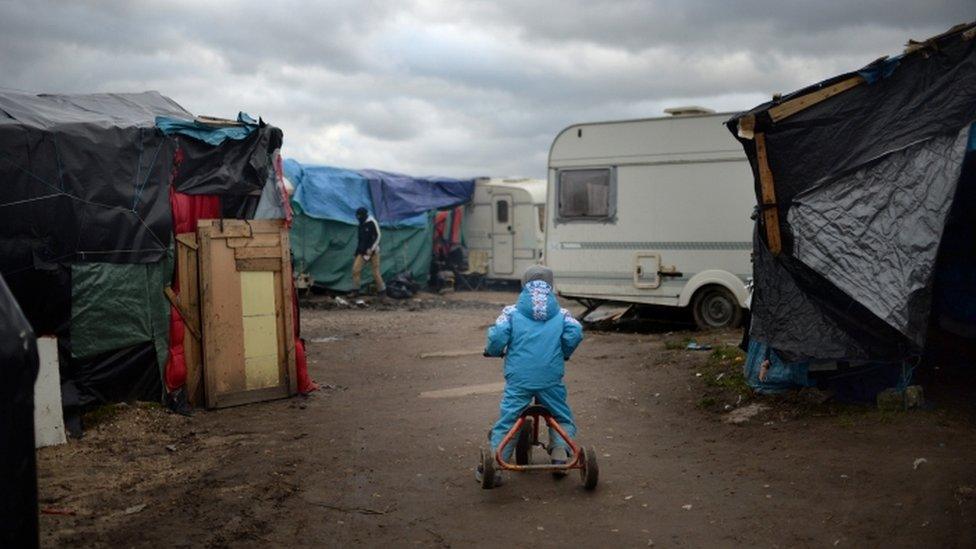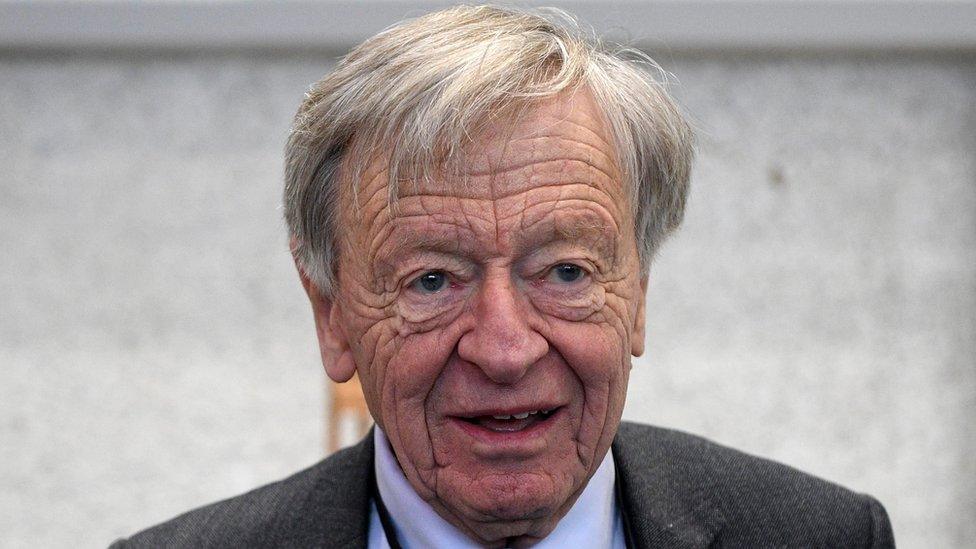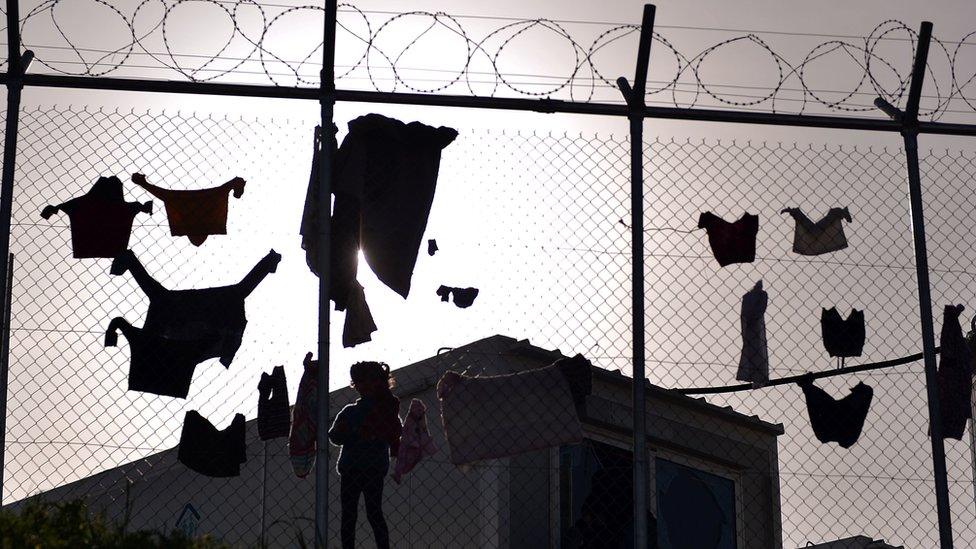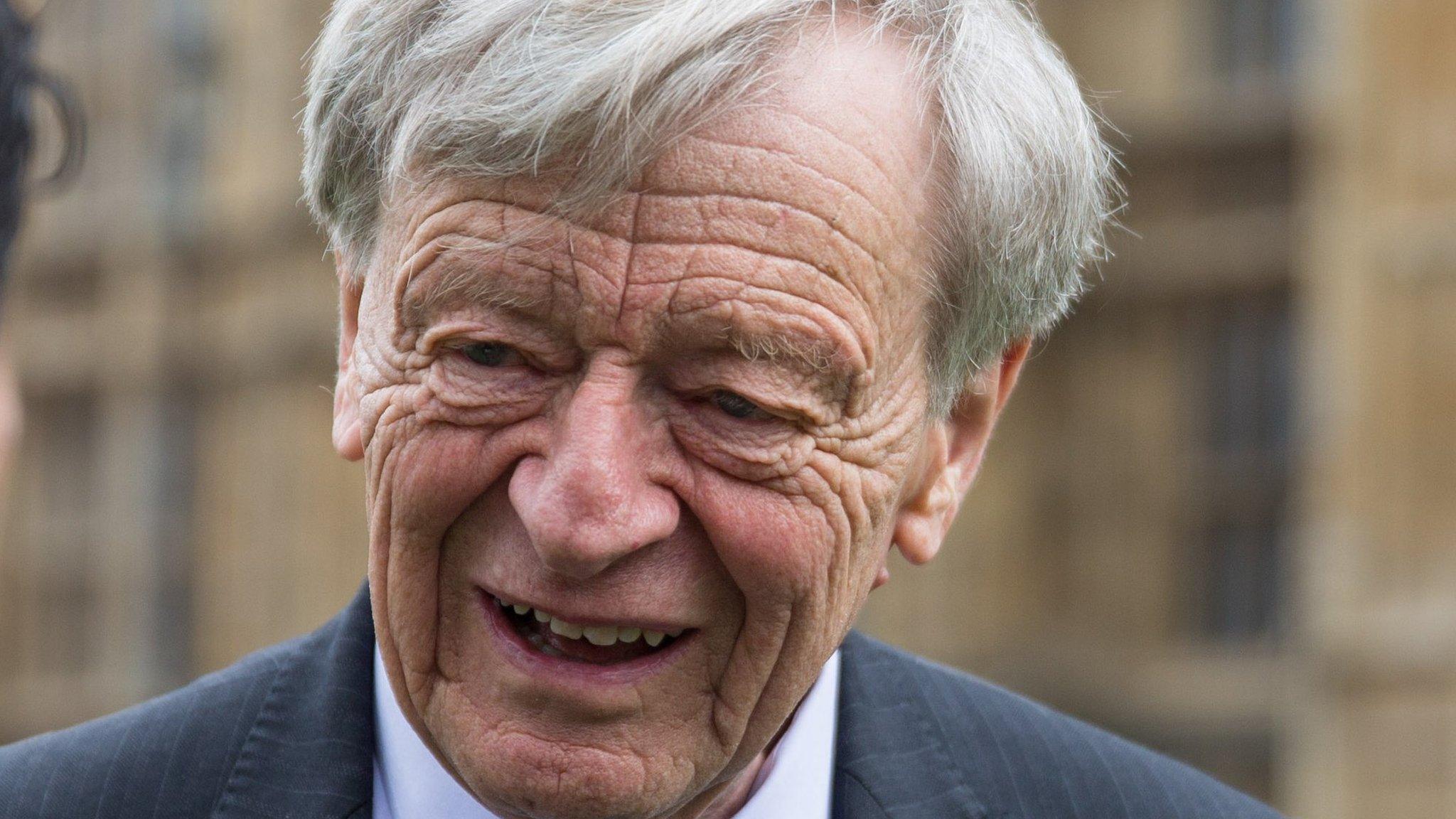Dubs amendment: End of child migrant scheme 'shameful'
- Published
Yvette Cooper said children were being pushed back into the arms of people traffickers
Church leaders, MPs and peers have condemned the decision to end the "Dubs amendment" scheme to let unaccompanied migrant children in to the UK.
The Archbishop of Canterbury said he was "shocked", while Labour's Yvette Cooper described it as "shameful".
Ministers said 350 children would have arrived under the scheme by the time it ended in March but that there were fears it encouraged people traffickers.
Theresa May says what the UK is doing to help refugees is "absolutely right".
The prime minister pointed to separate schemes that will resettle 20,000 Syrian refugees from camps in the region as well as reuniting migrant children with families already in the UK.
The Dubs amendment, designed by the Labour peer and former child refugee Lord Dubs, aimed to help some of the estimated 90,000 unaccompanied migrant children across Europe.
It was accepted by then Prime Minister David Cameron last year after he was faced with a rebellion in the House of Lords.
While there was no target number specified in law, Lord Dubs and his supporters had suggested the UK could help 3,000 of the most vulnerable.

On Wednesday, ministers announced that 200 children had been brought in under the scheme and that it would close after another 150 were settled in the UK.
Home Secretary Amber Rudd defended the decision, which she said had been made after France raised concerns it could be encouraging more children to make the perilous journey to Europe.
Speaking in the Commons, she said: "I am clear that when working with my French counterparts they do not want us to indefinitely continue to accept children under the Dubs amendment because they specify, and I agree with them, that it acts as a draw.
"It acts as a pull. It encourages the people traffickers."
She said the government remained committed to accepting 3,000 child refugees from crisis-hit regions such as Syria.
Amber Rudd said she was "proud" of the UK's approach to child migration
The move has prompted fierce criticism from MPs, including those from the Tory party, as well as the Archbishop of Canterbury.
Shadow home secretary Diane Abbott attacked Ms Rudd, asking: "How does she live with herself?"
Liberal Democrat leader Tim Farron attacked the government for a "betrayal of these vulnerable children and a betrayal of British values", while Green Party co-leader Jonathan Bartley said the decision was "an absolute disgrace".
Tory MP David Burrowes said it looks like the government has "cut and run from child refugees" while Conservative MP Heidi Allen MP said she would support a judicial review on the decision.
The Archbishop of Canterbury Justin Welby said the UK had a "great history of welcoming those in need" and hoped the government would reconsider its decision.
The Bishop of Croydon, the Rt Revd Jonathan Clark, who has been involved with efforts to welcome child migrants, said the government was "in effect helping the trafficking industry".
While Lord Dubs said: "I believe in arbitrarily closing down the scheme, without any good reason for doing so, the government is in breach of its own commitments."

The law was designed by former child refugee Lord Dubs
However, the prime minister has defended the government's approach to refugees by pointing to various other schemes adopted to bring them into the UK.
She said: "We have been seeing quite a number of children and families being resettled here in the United Kingdom and I think what we are doing in terms of refugees is absolutely right."
The total number of children to accept under the Dubs amendment was reached after consultation with local authorities - with councils indicating they could provide care to no more than 350 unaccompanied child migrants.
David Simmonds, chairman of the Local Government Association's asylum, refugee and migration task group, said councils had "demonstrated tremendous leadership at a local, regional and national level in resettling the children from the Calais camp."
A legal challenge on how the government has handled the legal commitment will go ahead on Friday.
- Published8 February 2017
- Published10 July 2016

- Published26 April 2016
